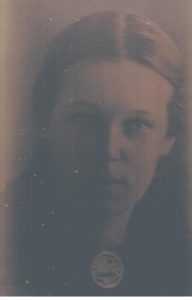
Well, here we are. Brussels, 1956. Trunks and cases already on board, documents in order. Friends and well-wishers gathered to see us off, posing for one last time together before the train takes us to the harbor, where we will board the SS Italia for the transatlantic voyage.
I’m the one in the baggy drawers, clutching, most likely, something to read. My brother is on my left, with my mother behind him; next to him is his best Belgian friend (and my first crush), Alain. Behind Alain is my grandmother. My father is second from the end in the back row.
I don’t remember the girl’s name. But I know I desperately wanted a pair of white knee socks just like hers. The reason I couldn’t have them, whatever it was, is lost to history.

